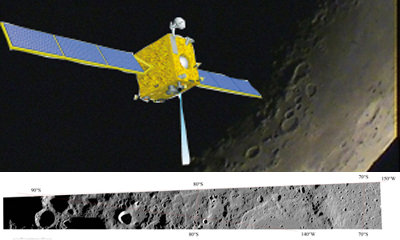China's first lunar probe, Chang'e-1, has successfully captured pictures of the moon's polar areas, Chinese officials said on Thursday.
The Commission of Science, Technology and Industry for National Defense released on Thursday a picture of the moon's polar areas, the first-ever such picture taken by Chinese.
"We have obtained good quality pictures," said spokesman Pei Zhaoyu of China National Space Administration (CNSA).
Scientists tuned the camera aboard the satellite on Jan. 4 so that it could start taking photos of the moon areas above 70 degrees north or south latitude, Pei said.
The camera was previously positioned to take photos of moon areas below 70 degrees north or south latitude, according to Pei.
He also said all facilities on Chang'e-1 were functioning well and lunar probing missions would continue as planned.
The satellite has been carrying out explorations for nearly three months since it entered its working orbit at an altitude of 200 kilometers above the moon's surface on Nov. 7.
The probe adjusted its orbit by nearly two kilometers away from the moon's surface on Sunday night to avoid a power shortage during a moon eclipse on Feb. 21.
The orbital adjustment was expected to shorten the time period when the satellite was cut off from sunlight for power supply from 3.5 hours to two hours.
The satellite will perform an orbital adjustment again when another eclipse occurs in August.
The country published the first picture of the moon captured by the satellite on Nov. 26.
Making a three-dimensional survey of the moon's surface has been one of the planned goals of the 2,350-kilogram satellite with eight probing facilities aboard.
It will also analyze the abundance and distribution of elements on the lunar surface,investigate the characteristics of lunar regolith and the powdery soil layers, and explore conditions between the earth and the moon.
The launch of the orbiter kicks off the first step of China's three-stage moon mission, which will lead to a moon landing and launch of a rover vehicle around 2012.
In the third phase, another rover will land on the moon and return to Earth with lunar soil and stone samples for scientific research at around 2017.
(Xinhua News Agency January 31, 2008)


